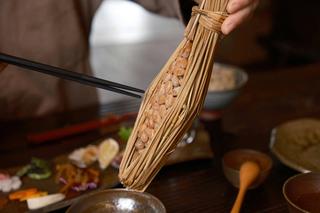Vegan vs Vegetarian: What’s the Difference?

In celebration of World Vegan Day, we take a deep dive into the differences between a vegetarian diet and a vegan diet. Both diets have been rising in popularity lately with people wanting to live healthier lives. You may have encountered Veganuary where people try to eat Vegan the whole month of January or Meatless Mondays where people do exactly that – consume no meat on Mondays. These are great introductions to living a plant-based lifestyle but what exactly is the difference between vegan and vegetarian? Aren’t they diets chock-full of plants and vegetables?
Vegan vs Vegetarian: What’s The Main Difference?
The main difference between a vegan vs vegetarian diet is that veganism is stricter. Vegetarians don’t eat or consume anything that comes from the slaughter of animals. Like vegans, they don’t consume meat or anything that food product that comes from an animal losing its life. However, vegetarians consume animal by-products that don’t involve the slaughter of animals. These include eggs, dairy products such as cheese and butter, as well as honey. Vegans on the other hand don’t consume any animal products at all. Honey, cheese, eggs are all off limits to a vegan diet. Some vegans, like those who are vegan for the planet vs vegan for health reasons, would argue that veganism isn’t a diet but a lifestyle. It’s a lifestyle that goes beyond what they eat and into the choices they make in other areas of their life such as clothing – most vegans avoid wearing leather among other things.
Vegan vs Vegetarian: How Healthy are These Diets?
Both vegan and vegetarian diets can be very healthy, especially if people focus on consuming whole foods. However, given the limited food sources, it may be more challenging to get all the nutrients your body needs from non-animal sources especially for vegans. For vegetarians, the consumption of eggs and dairy provide added nutrients that vegans can miss out on and that’s why it’s easier to be more nutrient-deficient on a vegan diet vs a vegetarian diet. However, it’s not impossible to live a healthy life as a vegan. There are several vegan supplements in the market that provide all the nutrients vegans need to live a healthy life.
Outside of the challenges veganism and vegetarianism provide when it comes to nutrients, going vegan or vegetarian has a whole host of health benefits. Vegans and vegetarians usually have lower body mass index, lower cholesterol, and lower glucose, which result in a reduced risk for some major diseases.
Vegan vs Vegetarian: Where Do I Start?
If you’re interested in eating plant-based and have zero experience between veganism and vegetarianism, we suggest starting slow. Try any of these options and find what best works for you. Remember, there’s no one-size fits all diet so do what is best for you.
Try Vegetarianism First Before Veganism
If you’re new to this whole thing, try vegetarianism first before going all out vegan. Eating a vegetarian diet is an easier transition from eating meat because it’s still less restrictive than a vegan diet. You can still have eggs for breakfast, cheese for snacks, and milk with your coffees. Once you find yourself settled into this transition, try moving onto veganism next. The gradual transition with restrictions may help you with sticking to veganism in the long run versus going cold turkey.
Try Meatless Mondays
Another easy way to transition into a vegan or vegetarian diet is to start small. Instead of completely changing your whole diet and restricting what you can or can’t eat, try having no meat and animal products on Mondays. It’s a smaller commitment that’s easier to do and it allows you to reap the benefits of a healthier diet while still eating what you’re used to on the other days. Feel free to increase the days you go meatless until you’ve completely transitioned into veganism or vegetarianism.
Vegan and Vegetarian Recipes for Beginners
It can be overwhelming to start eating a plant-based diet after eating an omnivore diet your whole life. To make your life easier, we’ve gathered a few of our favorite recipes you can make when you’re starting out in your vegan or vegetarian journey.
Vegan Recipes
Most people say that vegan recipes are bland and lack joy but we disagree. All it takes is a little creativity, and the right ingredients, to bring out tons of flavor in your vegan meals. One vegan friendly ingredient that we know will take all your savory vegan (and vegetarian!) dishes to the next level is Knorr Liquid Seasoning Original and Chili.
- Mixed Veg Tri-Color Pasta Recipe
- Thai Papaya Salad
Vegetarian Recipes
These vegetarian recipes are so packed in flavor that you won’t even miss the meat. While these recipes are not vegan compliant, you can easily transform them into vegan-friendly meals by replacing the animal by-products into plant-based ones.
What are you waiting for? Now that you have all this knowledge (and delicious recipes), you can go out and celebrate World Vegan Day by whipping up a delicious vegan dish in the comforts of your own home. If you’re not quite ready for the transition and looking to add more plant-based meals into your diet, check out these plant-based beginner-friendly recipes for every meal of the day.
Suggested Article

Japanese Natto: A Quick Guide
